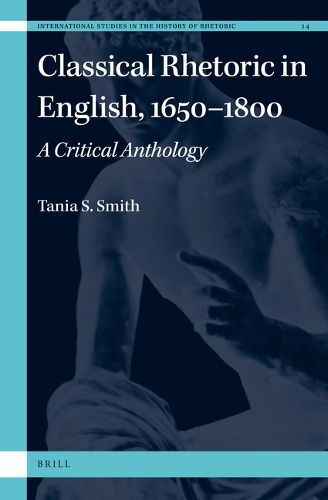Readings Newsletter
Become a Readings Member to make your shopping experience even easier.
Sign in or sign up for free!
You’re not far away from qualifying for FREE standard shipping within Australia
You’ve qualified for FREE standard shipping within Australia
The cart is loading…






Classical Rhetoric in English, 1650 - 1800 features English translations of the era’s most cherished Greek and Roman orators, rhetorical philosophers, and rhetorical critics. The publication history reveals how a distinctive British canon emerged from selected works by Plato, Isocrates, Demosthenes, Aristotle, Theophrastus, Cicero, Seneca, Quintilian, Tacitus and Longinus. Works by these ten authors, especially Cicero and Longinus, were widely disseminated, becoming key texts in the formation of British rhetorical culture. At the core of the volume, annotated selections offer the twenty-first century reader a sampling of these classical rhetorical works in translation. The glossary of rhetorical criticism elucidates the now archaic meanings of words that enabled citizens to communicate their moral and rhetorical taste.
$9.00 standard shipping within Australia
FREE standard shipping within Australia for orders over $100.00
Express & International shipping calculated at checkout
Classical Rhetoric in English, 1650 - 1800 features English translations of the era’s most cherished Greek and Roman orators, rhetorical philosophers, and rhetorical critics. The publication history reveals how a distinctive British canon emerged from selected works by Plato, Isocrates, Demosthenes, Aristotle, Theophrastus, Cicero, Seneca, Quintilian, Tacitus and Longinus. Works by these ten authors, especially Cicero and Longinus, were widely disseminated, becoming key texts in the formation of British rhetorical culture. At the core of the volume, annotated selections offer the twenty-first century reader a sampling of these classical rhetorical works in translation. The glossary of rhetorical criticism elucidates the now archaic meanings of words that enabled citizens to communicate their moral and rhetorical taste.